If you're out of ghee, can't find it at the grocery store or have absolutely no idea what ghee is... don't worry! Finding a substitute for ghee is easy and substitutes for ghee are commonly found at most grocery stores!
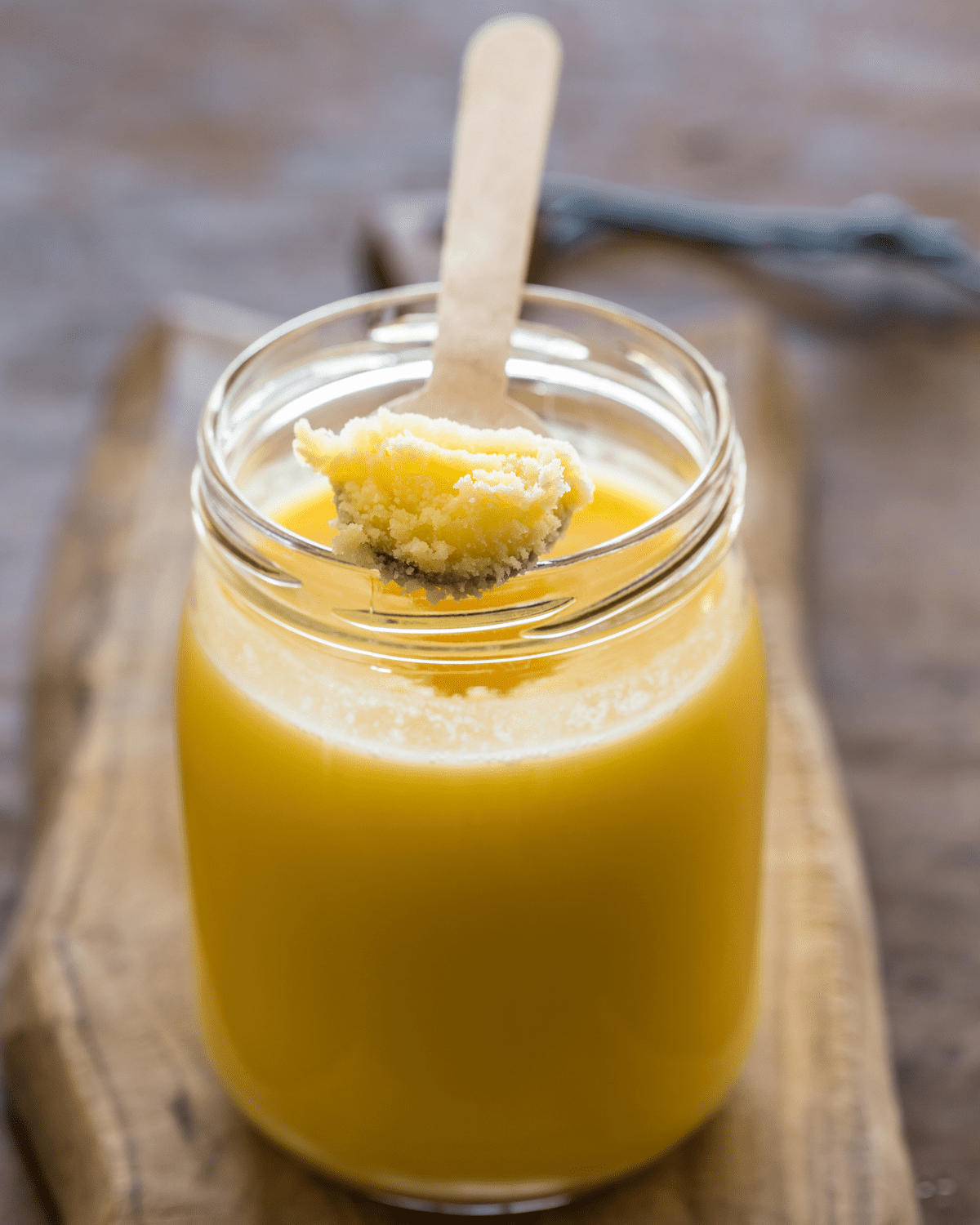
I was first introduced to ghee during my days of working at my family's health food store. I was intrigued by this shelf-stable, dairy-based butter product. I had never heard of it before and I was shocked that it could be found in the same section as the nut butters.
If you've never heard of ghee before, then purchasing it just for one specific recipe might be a little intimidating. It might not be the most budget-friendly move either, considering ghee is much more expensive than regular butter. Plus, there is no guarantee you will like ghee or use it beyond the one recipe you are making that calls for it.
Finding a substitute for ghee might be the better option for you!
Jump to:
What is ghee?
Ghee is a type of clarified butter that is typically made from cow's milk, just like "regular" butter is. Ghee is made by melting regular butter. As the melted unsalted butter continues to cook, the water, liquid fats and milk solids separate. As the butter simmers, the water is removed, the milk solids sink to the bottom and begin to brown and caramelize. The caramelized milk solids give ghee it's distinct nutty flavor.
The milk solids are skimmed out and the liquid fat that is left is golden colored ghee. Since the milk solids are removed, ghee has less lactose than butter. Ghee also has a much higher smoke point than butter, making it an excellent choice for high heat cooking.
Ghee is used as a cooking oil and as an ingredient in recipes. It is also common in Ayurveda. You can find ghee at most health food stores, Indian grocery stores and online. Organic Valley Ghee is the brand that I have used the most!
Ghee is also Whole30 Diet approved and Paleo Diet friendly!
How to make ghee
This "How to Make Ghee" post by The Pioneer Woman provides step-by-step instructions with photos, describing how to make ghee. This post shows you how to make ghee in the instant pot.
Substitutes for ghee
Ghee is incredibly easy to substitute out in a recipe. It is a high heat cooking oil that is low in lactose. There are several other cooking oil options that fit into that category. Butter is also a common substitute for ghee because ghee is derived from butter.
Common substitutes for ghee are:
- Butter
- Olive oil
- Coconut oil
- Canola oil
- Sunflower oil
- Soybean oil
- Avocado oil
Butter
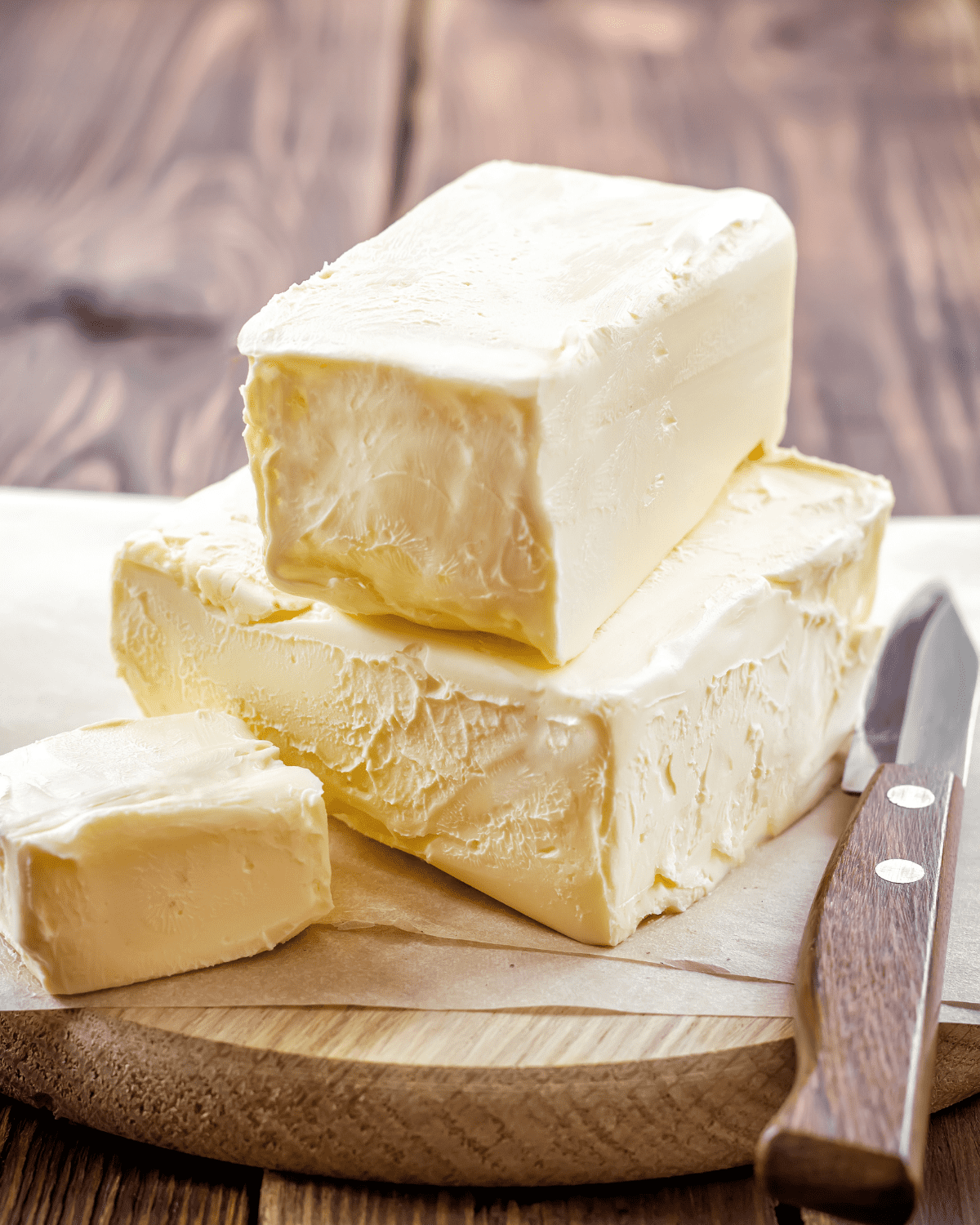
Butter would be the most natural choice for a ghee substitute since butter is the basis for ghee. The flavor profile, appearance and consistency will be very similar to ghee. Like ghee, butter is a solid at room temperature, is yellow in color and is rich in flavor. Butter is not dairy free though and butter has a lower smoke point than ghee. Butter should be stored in the refrigerator, while ghee can go in the pantry.
Olive oil
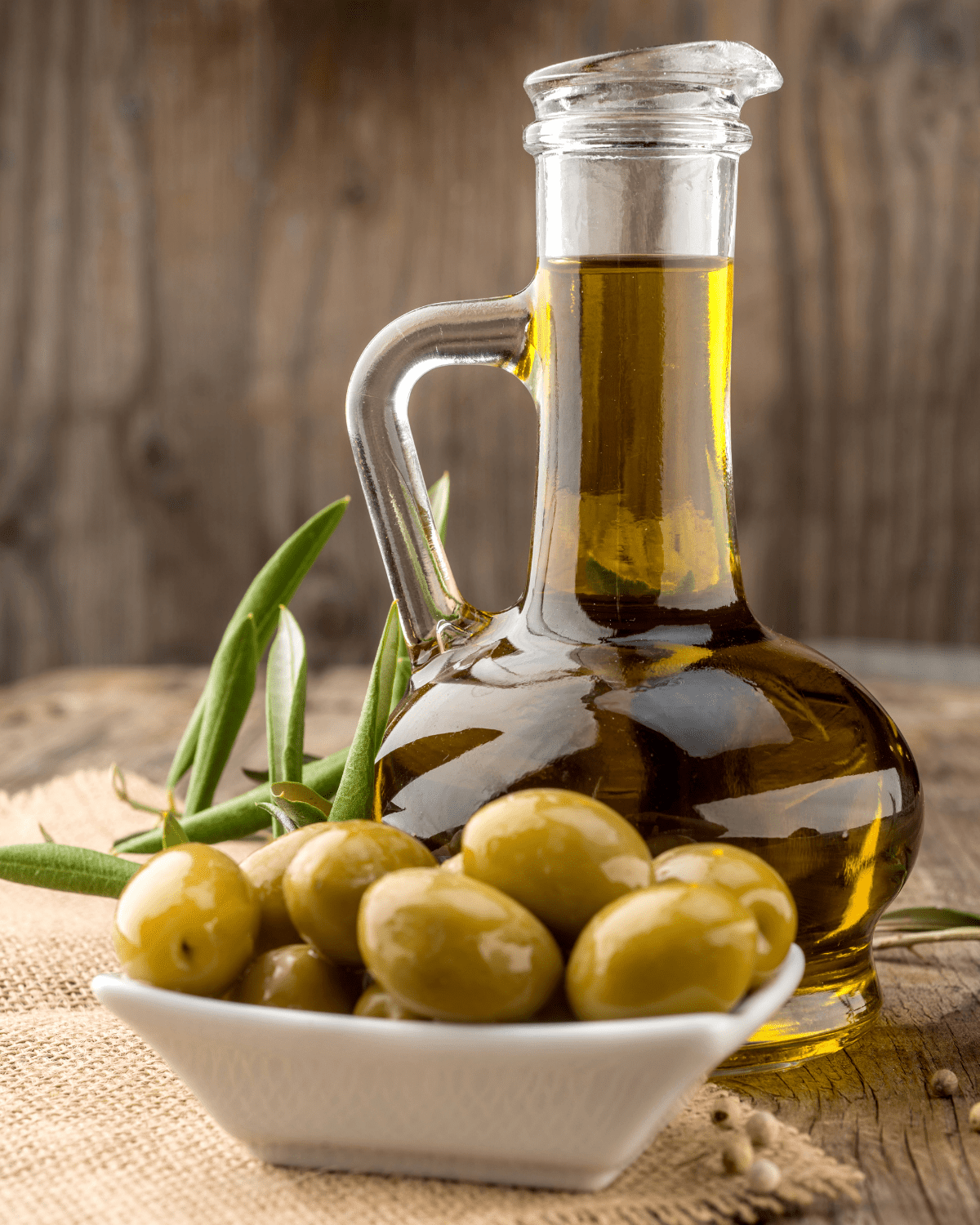
Olive oil is a liquid fat, derived from olives. It is commonly used to sauté and pan-fry foods, and is also used in salad dressings and marinades. Like ghee, olive oil is shelf-stable. Some say that olive oil can replicate the distinct nutty flavor found in ghee. Olive oil is not commonly used in baking, but can be found in some baked good recipes. Olive oil is a grocery store staple, and many different brands are easily found in most grocery stores, at a range of different price points.
I use olive oil regularly in my recipes! My Summer Tortellini Salad and my Vegetarian White Bean Salad both feature olive oil as an ingredient.
Coconut oil
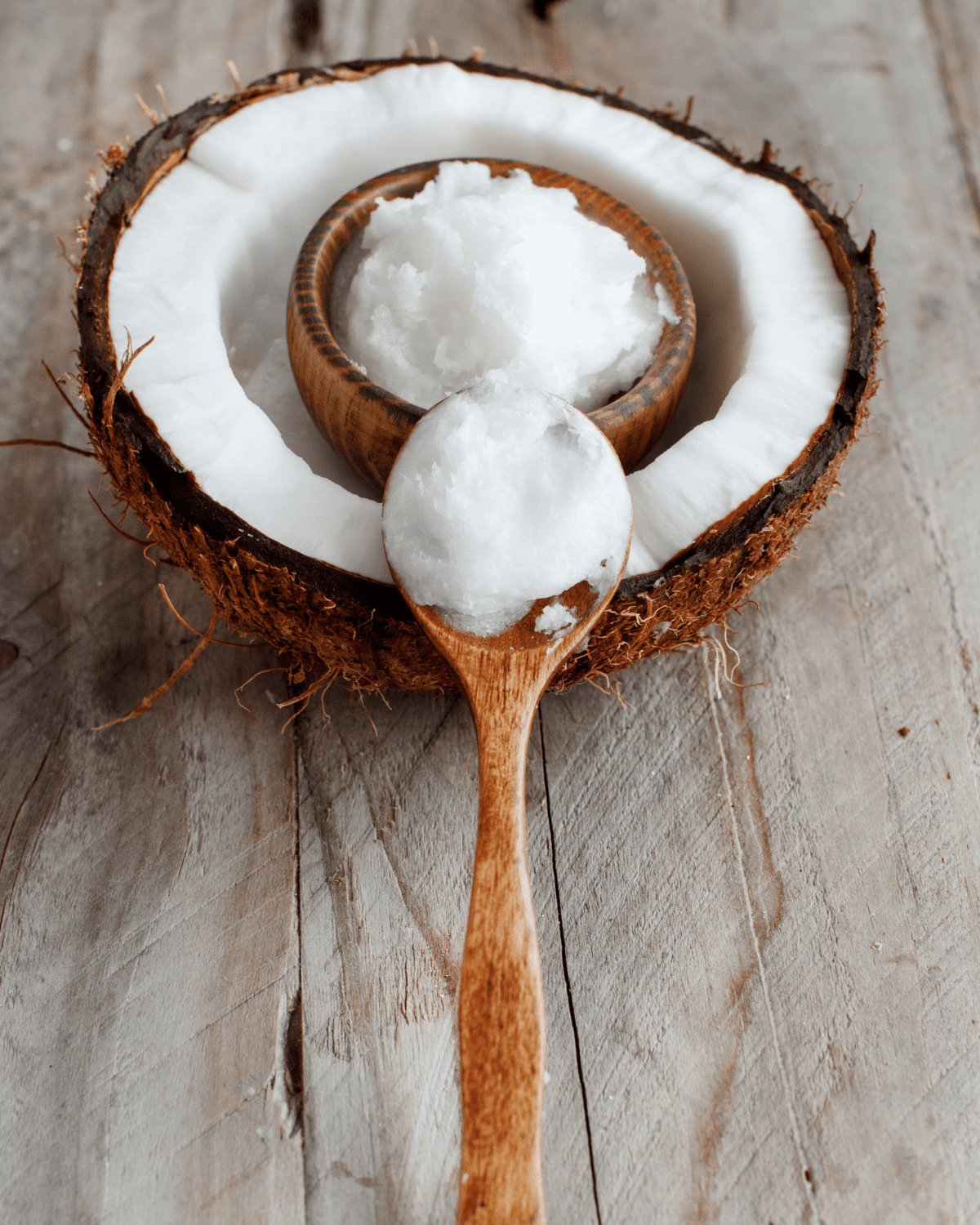
Coconut oil is a plant-based saturated fat that is solid at room temperature. Coconut oil has soared in popularity in the last decade. Due to it's popularity, coconut oil is now a staple ingredient in many natural beauty products and natural health supplements. Coconut oil has a high smoke point, between 350°F and 400°F, making it an excellent choice for high heat cooking. If you're going to substitute coconut oil in for ghee, then you absolutely have to enjoy the taste of coconut. Coconut oil tastes and smells like... coconut! The coconut flavor can come through in the dish that you're cooking. Like ghee, coconut oil is a more expensive oil. The brands of coconut oil that I use the most are Dr. Bronner's and VitaCoco.
My Oat Flour Pancakes feature coconut oil as an ingredient.
Canola oil
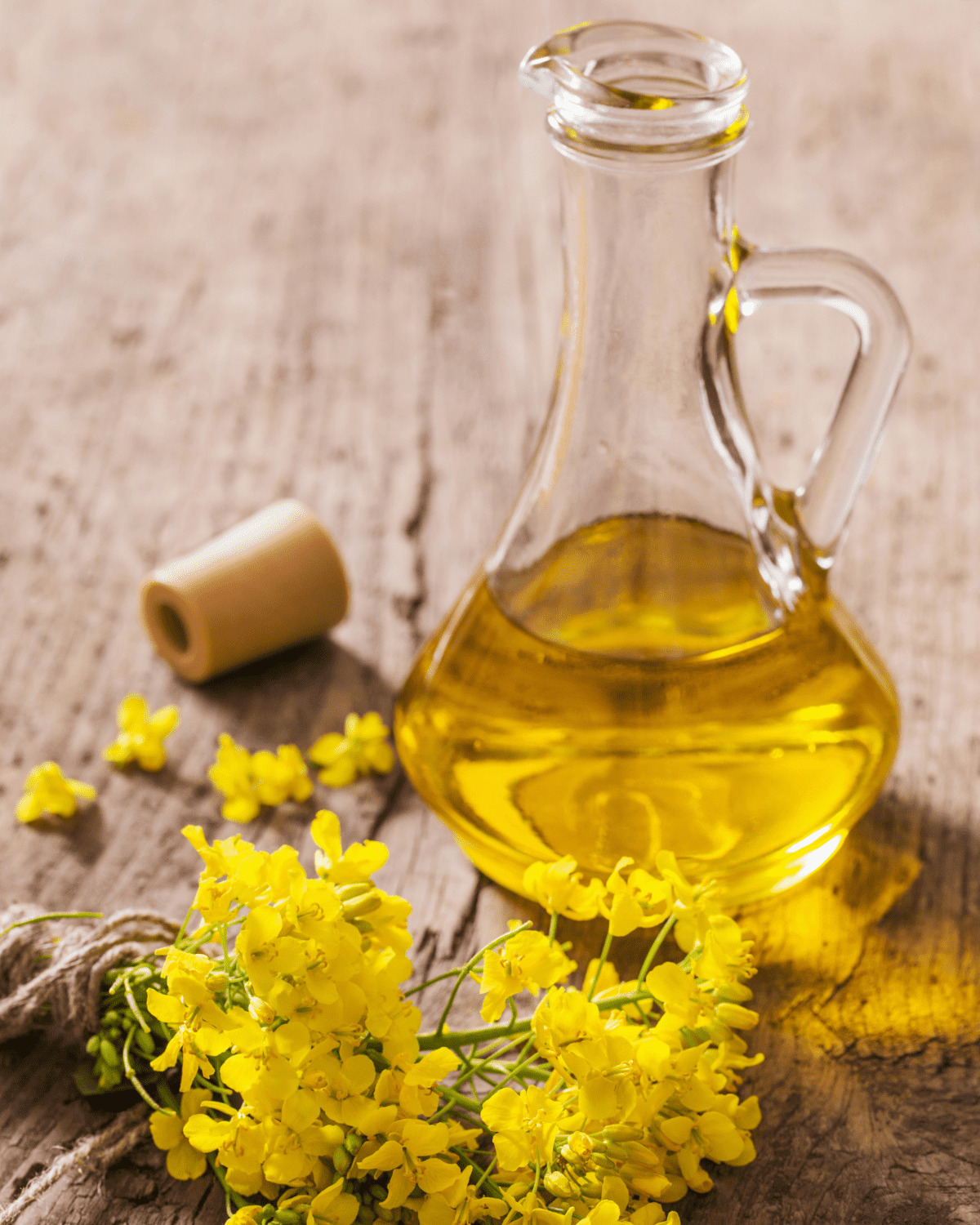
Out of all of the oils listed on this post, I think it's safe to say that canola oil is the oil that is most commonly found in processed food products. Canola oil is a refined, plant-based oil that is derived from the rapeseed plant. Canola is a popular cooking oil, due in part to it's mild flavor and high smoke point. It is very commonly used for sautéing, frying and baking. It's an excellent budget-friendly oil and is easy to find at most grocery stores.
Sunflower oil
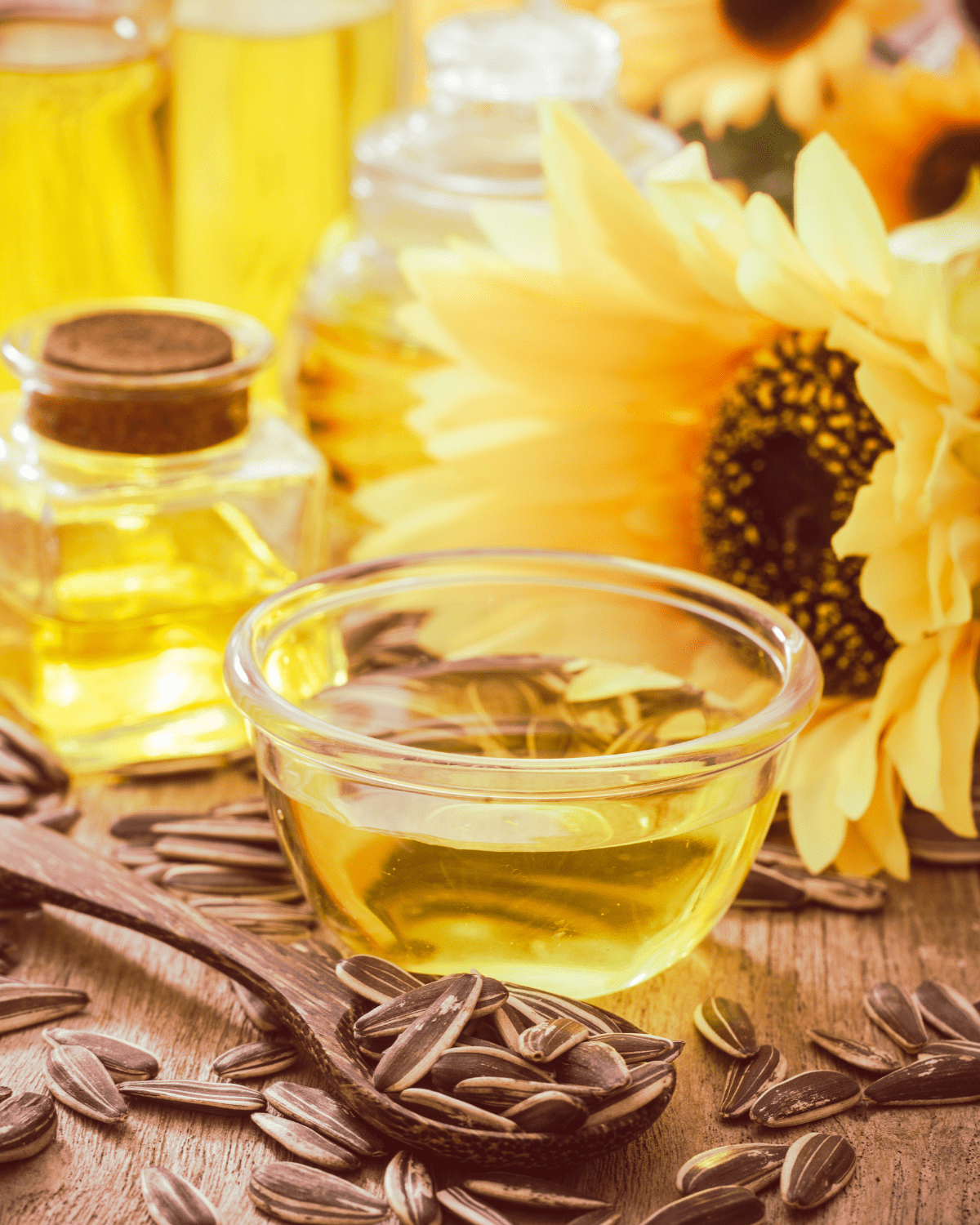
Sunflower oil is pressed from the seeds of the sunflower plant. Sunflower seed oil is similar to canola oil in terms of it's mild flavor and high smoke point. Like canola oil, this makes it a great choice for frying, baking and sautéing. Sunflower oil is a liquid at room temperature and like ghee, it can be stored in a cupboard or kitchen pantry. Sunflower oil is regularly found for purchase at natural food stores, with Spectrum Organic Sunflower Oil being one of the most popular brands available.
Soybean oil
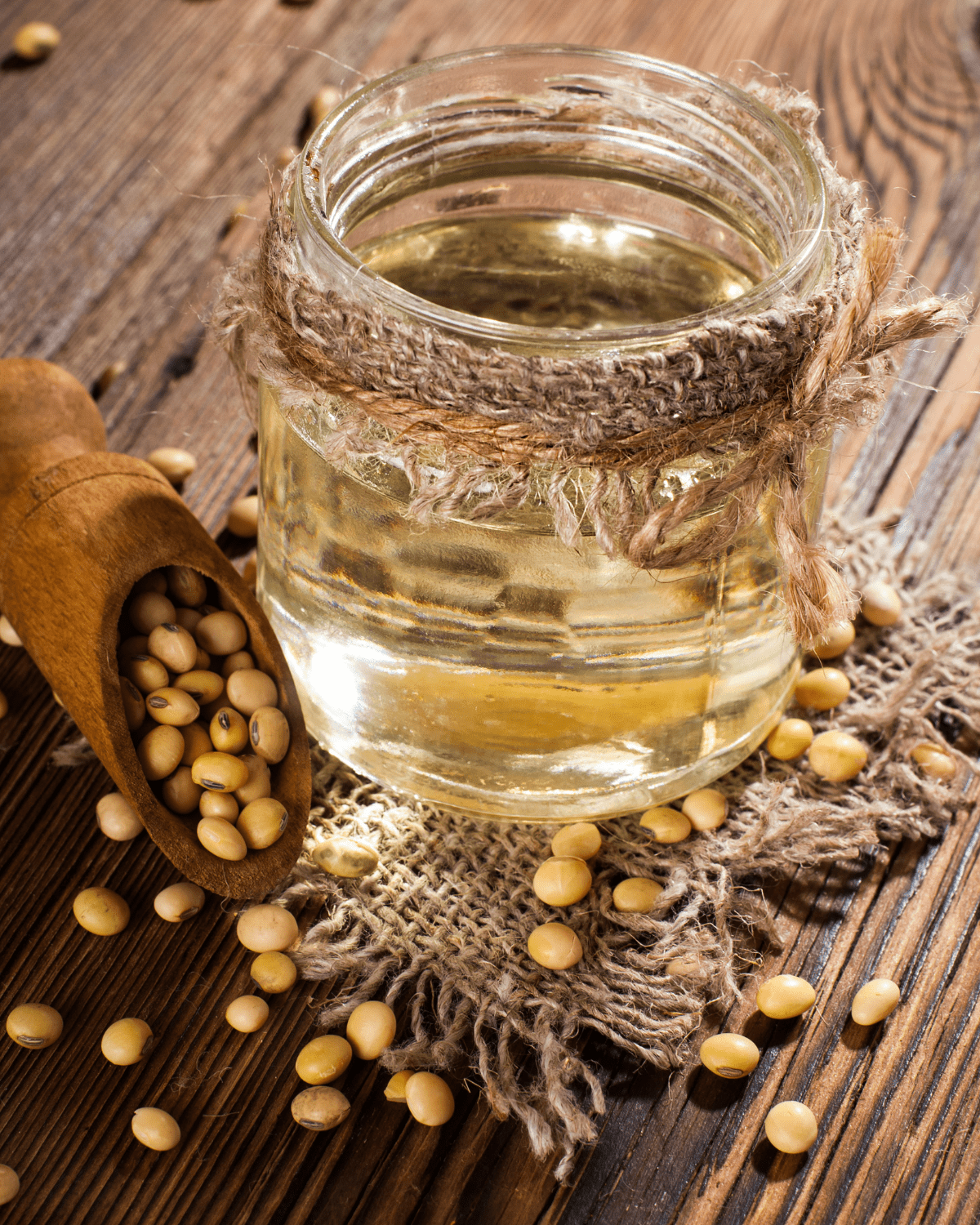
Soybean oil is a vegetable oil that is produced from the seeds of the soybean plant. Like many of the other oils listed, soybean oil has a neutral flavor, high smoke point and can be used for frying and baking. Similar to canola oil, soybean oil is regularly found in processed food products. Soybean oil is not commonly found for purchase on grocery store shelves though. Due to it's lack of availability, soybean oil might not be what you choose to replace ghee with.
Avocado oil
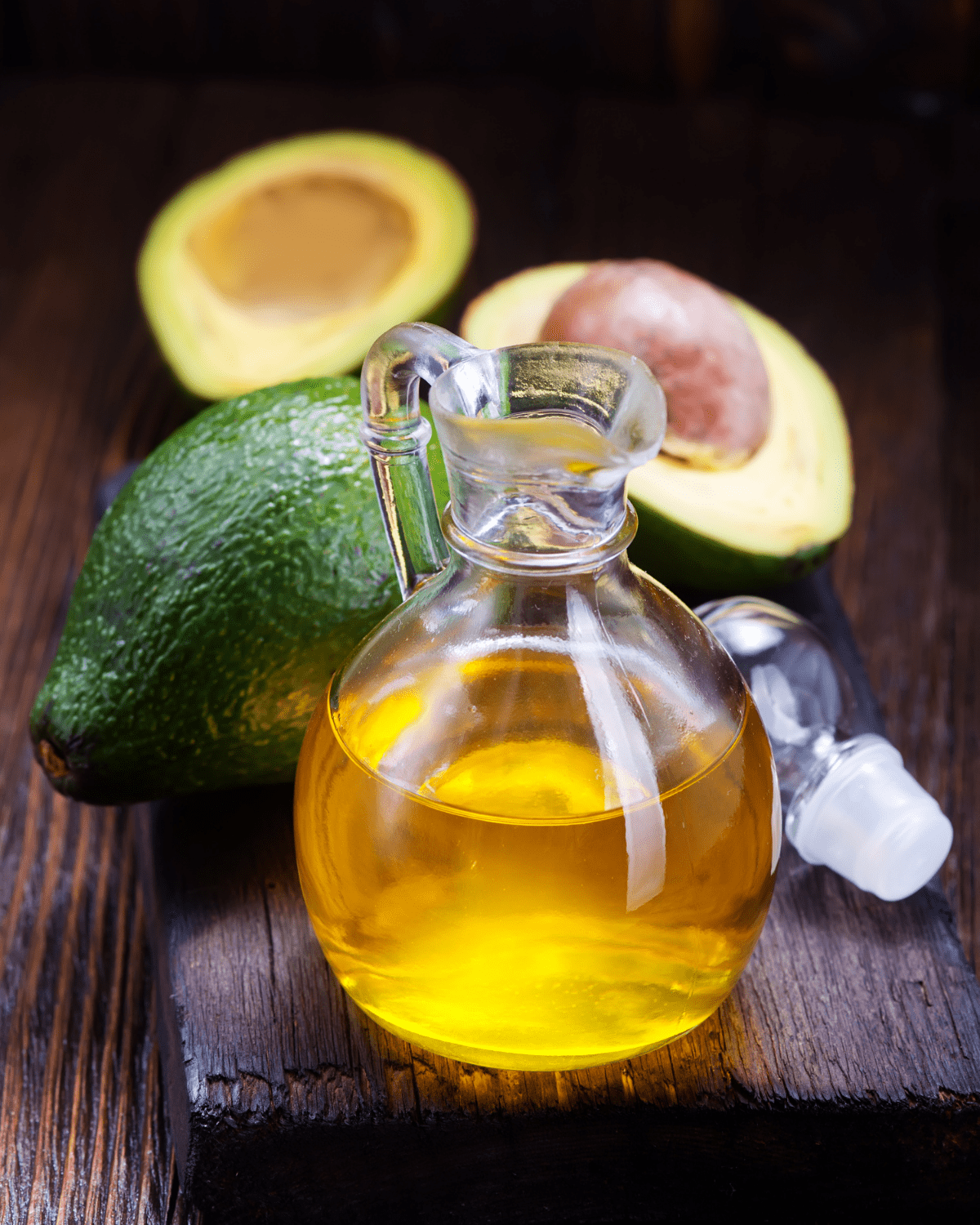
Avocado oil is derived from the avocado fruit. Similar to coconut oil, avocado oil contains some of the color and flavor of the avocado plant, giving the oil a slightly greenish color. Also like coconut oil, avocado oil is commonly found in natural beauty products. Avocado oil is another versatile plant-based oil with a high smoke point, making it an excellent choice for sautéing and frying.
Ghee recipes
These recipes that use ghee all sound delicious!
How to choose a substitute
When deciding on a substitute for ghee, I would ask myself a few questions. Asking the following questions will help me narrow down my choices.
Do I need a low-lactose substitute? If no, then I would definitely choose butter as a substitute for ghee.
Am I on a budget? If yes, then I would NOT pick coconut oil, sunflower oil or avocado oil. I would instead choose canola, soybean or olive oil.
Do I have limited availability at stores near me? If yes, then I would look for an olive oil or a canola oil.
Do I want a neutral tasting oil? If the answer is yes, then I would NOT choose coconut oil or avocado oil. Olive oil might even be up for debate with this question as well. Neutral tasting oils are the canola, soybean and sunflower seed oil.
Do I want my oil to be a solid at room temperature? If this is important to me, then I would choose butter or coconut oil.
Related posts
You might also like these other informative posts where I help you choose common ingredient substitutions!
Whatever choice you make, I hope this article has helped you narrow down your options!










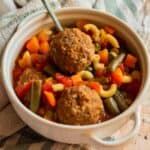



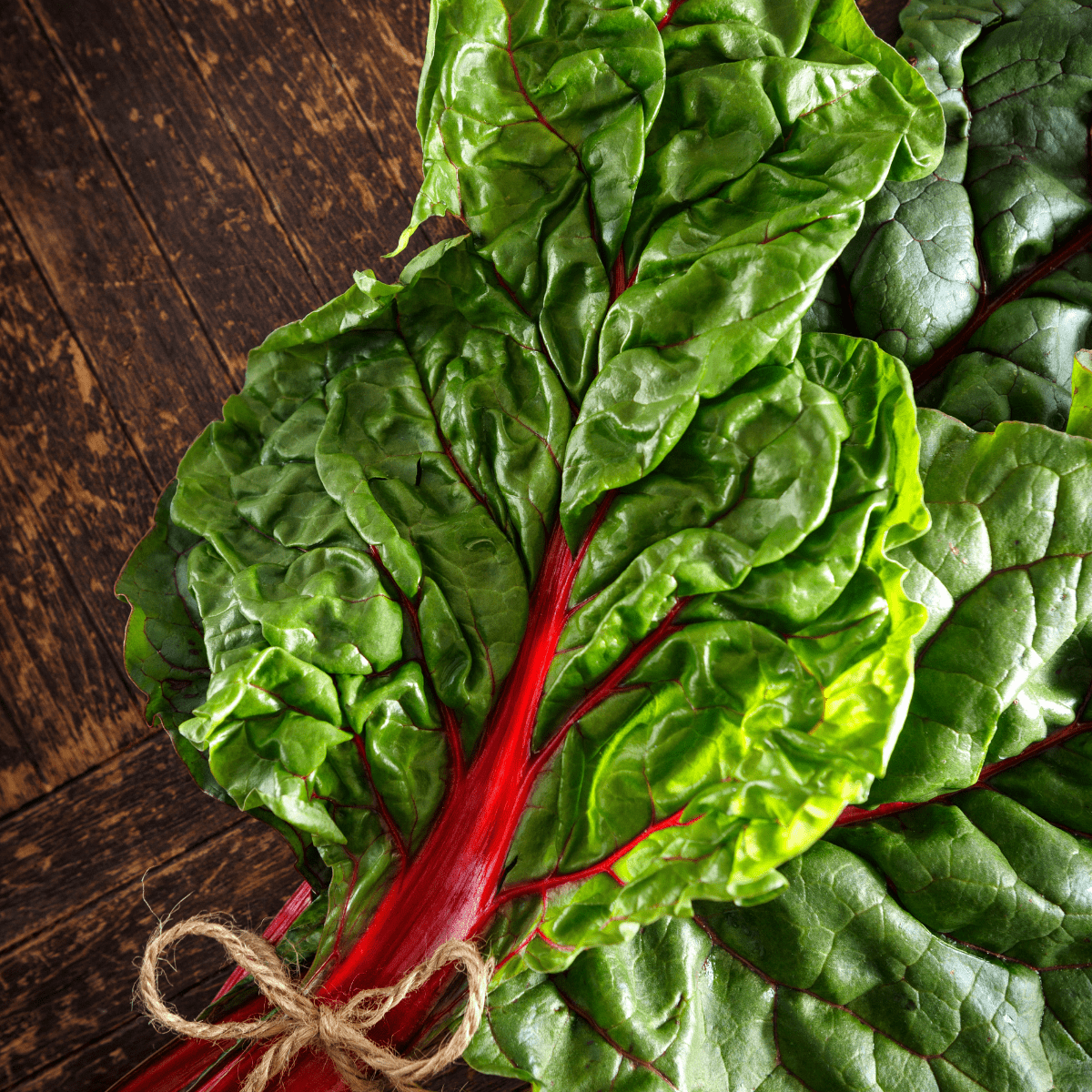
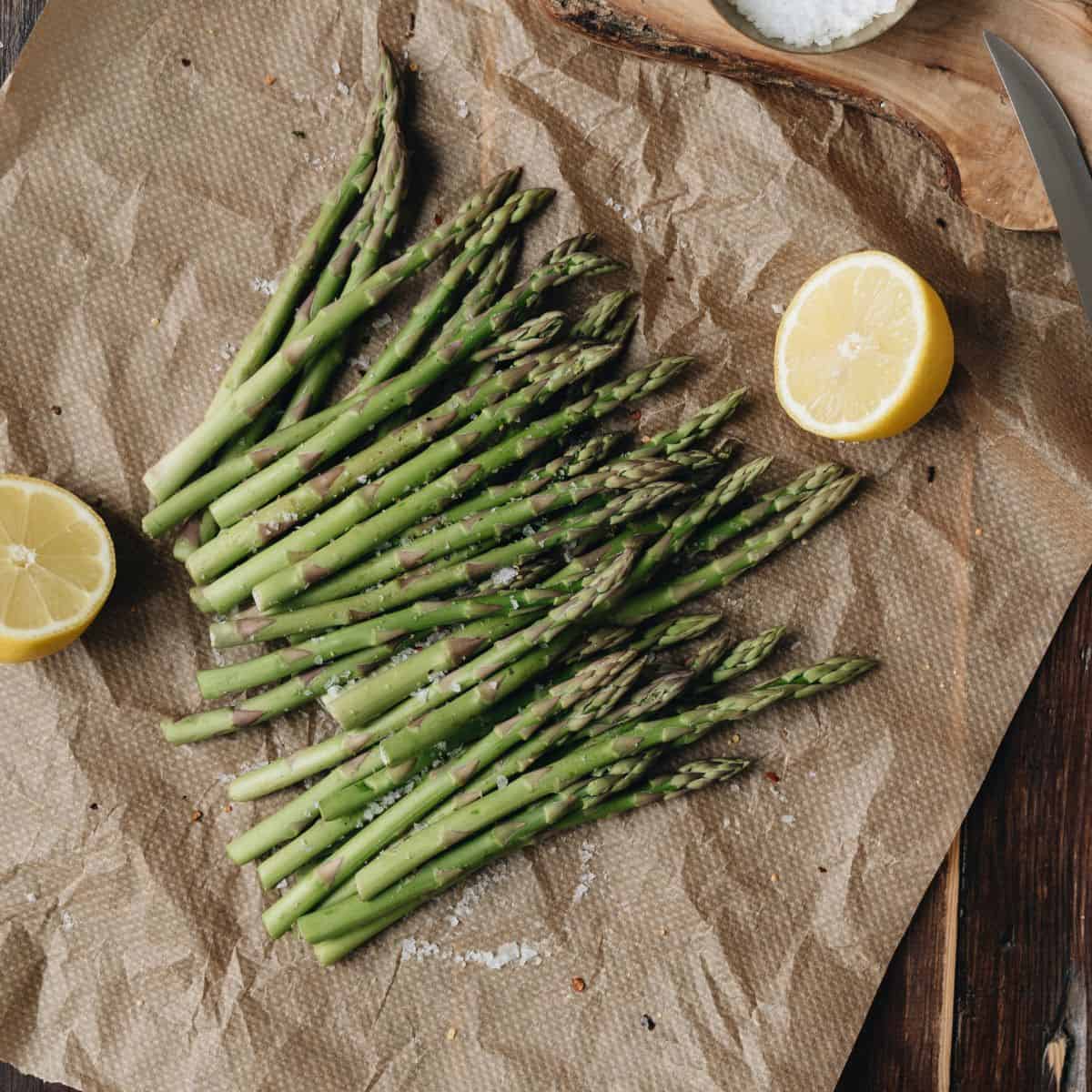
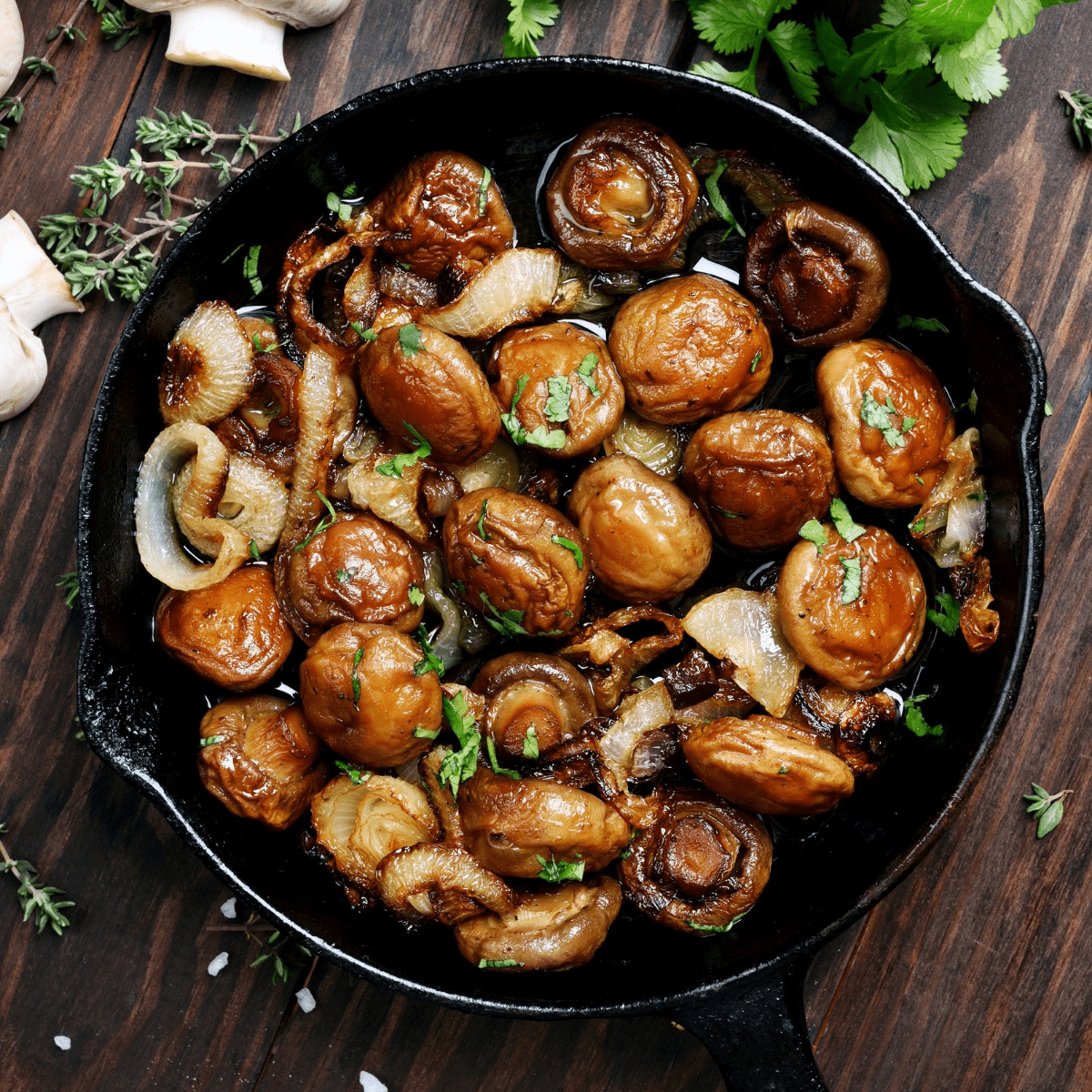


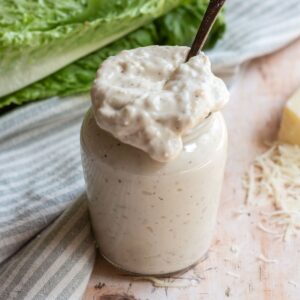

Comments
No Comments